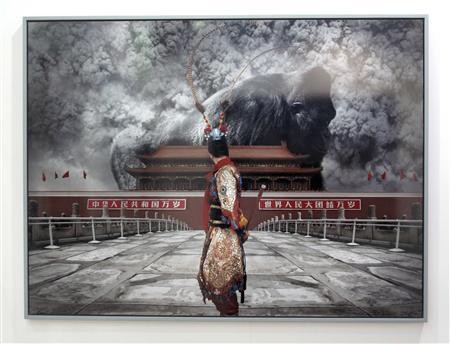"Monkey King: Hero Is Back" has just become the most financially successful Chinese animated film in history, earning 620 million yuan ($99.8 million) as of July 26.
The animated film, directed by first-time director Tian Xiaopeng, surpassed "Kung Fu Panda 2," which in 2011 grossed 617 million yuan ($99.3 million) in China, as the most successful animated film in Chinese theaters at the time.
Xiaopeng attributed the national success of "Monkey King: Hero Is Back" to cultural factors.
"Chinese people have their own values, which means we don't need to follow the mindset of the West, especially that of the Hollywood," Tian said. "We used our own traditional stories to resonate with our audiences' emotions, and technically we tell the story by means of the West."
The film took Tian and his team eight years to finish. It was made on a budget of $16 million, with $113,000 raised through a government-run crowdfunding program called "Internet Plus."
"We can't afford the huge costs of Hollywood 3D animated films, so we have to find our own edge," Tian said regarding the small budget. "The only way to compete with Hollywood is to connect on a cultural and emotional level. I want to tell the story in a Chinese way, using our own philosophy and aesthetics to explain the world in our eyes."
Until recently, animated films produced in China have been criticized by Chinese citizens for their poor production value, but "Monkey King: Hero Is Back" seems to have won over audiences, with reports of audience members watching multiple times.
However, filmmakers like Tian fear that, without the proper investment in Chinese animation, "Monkey King: Hero Is Back" might just be seen as a fluke.
China currently has the largest animation industry in the world, producing 260,000 minutes of animated footage per year, with only about a third actually making it on screen. In comparison, Japan, in second place, produces half as many minutes in a year.



























